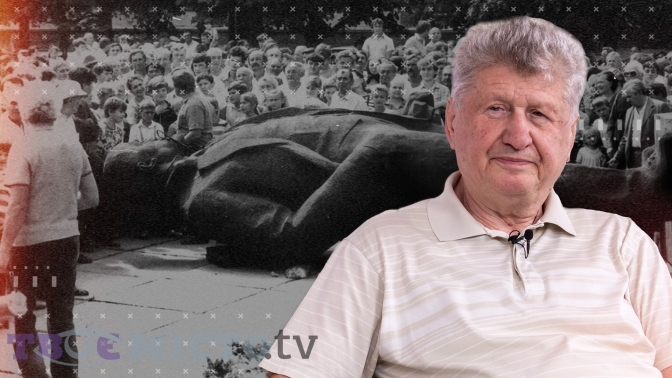
[For urgent updates please follow Ukrainian Freedom News on Telegram]
In 1990, many republics of the Soviet Union held their elections. The socio-political movement «Sajudis» won throughout Lithuania. In Ukraine, on the contrary, the People’s Movement prevailed only in three regions. Why did this happen?
You see, in terms of population and area, these three regions were equivalent to three [Baltic] republics...
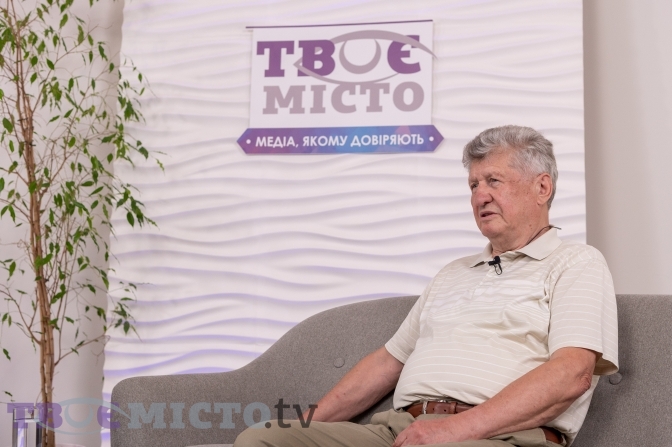
Did you feel that the communists perceived you as enemies?
The situation was specific. There was Kyiv between Moscow and us in Lviv, and this allowed us to be more revolutionary than the movements in Lithuania and Estonia. We took more decisive action. There were still monuments [to Soviet leaders] in the republics, and we have already toppled a huge five-meter monument to Lenin in the mining town of Chervonohrad on August 1, 1990. After that, the central government organized a blockade of the Lviv region, primarily an economic blockade. Namely, Russian enterprises were prohibited from supplying components and products here.

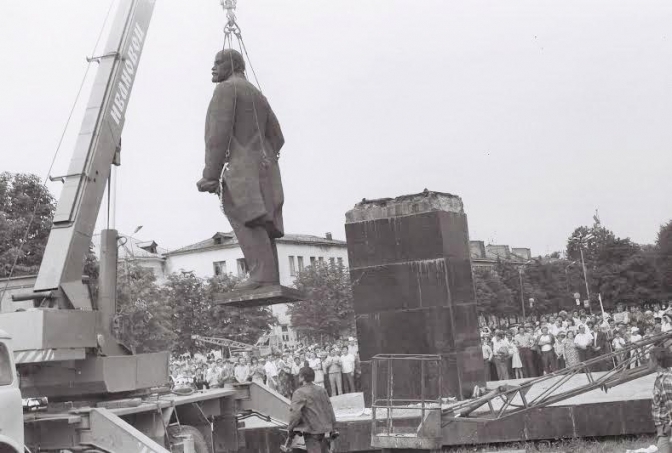
The toppling of the five-meter Lenin monument in Chervonohrad in 1990
That is, Galicians had to suffer from poverty?
Yes, but when the ministries sent out telegrams with such prohibitions, representatives of our enterprises were also among the recipients (Laughs). But we managed to deal with it. Some leaders went to Russia or the east of Ukraine with the message: «We are communists! You must help us!» So our people, who had to be communists to become leaders, received help.
Andres Oslund recalled how 30 years ago, he first came to Ukraine and was surprised that most of the government officials did not understand basic concepts of the market economy. How did you rate it at that time?
I met Oslund several times and I think he exaggerated a bit. We had many enterprises that traded with the West and got along well in market affairs. We created the Galician Assembly, united the Lviv, Ternopil and Ivano-Frankivsk regions in order to withstand the economic crisis during these blockades. We organized an economic centre that was supposed to develop reform programs.
I remember a discussion that led to rather tragic consequences. Pynzenyk, then the Minister of Economy, believed that it’s necessary to break ties, divide the economy into small particles, create market legislation, and only after that, these particles will form larger ones. This had to be extreme shock therapy. I believed that it was necessary to follow a different path because I understood that we had many large and powerful enterprises: agricultural, metallurgical and machine-building. We were involved in the global division of labour, and the global economy as a whole. Therefore, without proper reform, it was not necessary to immediately jump to market relations. I understood even then that during privatization, those who take over large enterprises and their resources will become oligarchs. So it happened...
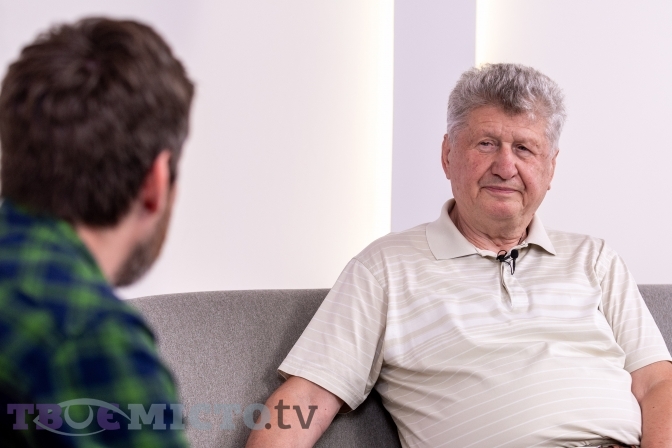
In 1993, a debate was held in the columns of Russian newspapers, asking who would become the new prime minister of Ukraine if Kuchma resigns. You were named among the candidates. Did the higher authorities discuss this possibility with you?
There were several such moments. The first one took place yet when the Union existed. Several meetings were held in Moscow under the auspices of the prime minister, at which Mikhail Gorbachev and other leaders spoke. They looked closely at us, young people’s officials elected in the regions, willing to take us from the seats and include in the all-Union process. They offered me the same, quite persistently. But we categorically refused, because, at that time, we were in the fairway of economic and political processes in Ukraine. Lviv region played a serious role in the changes of the whole country, we sent our messengers-agitators to other regions, considering this work more important than anything personal.
At that time, was Moscow already an enemy for you, or was it always like that?
I will tell you such a story. At first, as a candidate of technical sciences, I was responsible for the technical part of the work, engaged in the development of special equipment. In 1982, for a few weeks, I was appointed director of the design bureau in Ulyanovsk. At that time, something like «Silicon Valley» was emerging there, after receiving the five billion rubles that the state had allocated for the development of research and design enterprises. Several of my friends were also offered directorships at these enterprises. They later privatized them and became millionaires. When I saw this «Russian world» in Ulyanovsk, where the city centre was built up, and wooden crooked shacks stood 200-300 meters away, I said «thank you, but no,» and went home. Minister Shkabardnia, a powerful man originally from the Kuban, held a place for me for another two months and called me more than once, but I did not return [Mykhailo Shkabardnia – Minister of Instrumentation, Automation and Control Systems of the USSR in 1980-1989; Kuban – the territory in Western Russia close to the Black Sea, originally the ethnic Ukrainian area.]
There was a lot of variety, including what you mentioned. But I believed that the role of the Lviv region at that time was exceptional, nationwide, that it was more important for me to be the head of the Lviv region and implement these changes.
It did not begin here, because, in fact, nothing stopped. Until the end of the 1950s, there were still underground partisans, and hardly some families didn’t have a weapon. Then, the «shistdesyatnyky» [literary dissidents of the sixties] began to act, the process of publishing literature continued. In 1964, I entered the Lviv Polytechnic and immediately joined this process. Already in the first year, I got access to self-publishing materials [the so-called ‘samvydav’, which was created and spread beyond the state censorship, that made it de-facto illegal], and we organized the publishing business in the group. A comrade from eastern Ukraine was a talented photographer, so he was asked to publish a newspaper in the dormitory. A tiny room was allocated for this purpose in the semi-basement, where we set up a publishing house, and distribution proceeded from there. I even have materials from that time saved.
Were you not afraid to be engaged?
In 1965, a man who had apparently moved here, joined our group. Soon, he made a denunciation on us, and I spent a week in a prison cell. But the daughter of the district commander, Olya Vlashchenko, studied in a parallel group and had a certain sympathy for me. She told this story to her dad, and he pulled me out of there. Actually, he pulled me out three times, otherwise I would have passed the same «universities» as Vyacheslav Chornovil [dissident who spent time in various Soviet prisons].
The atmosphere of opposition was constant in Lviv. But this city has always been Ukrainian – science, education, all spheres of life, and this played its role.
During Kuchma’s second presidential term [1999-2004], it was felt that he was trying to build an authoritarian system. There was a feeling that Ukraine was going «in the wrong direction». Did Lviv then continue to play the role of Ukrainian Piedmont?
This system began to be organized on the basis of opposition to us, especially in economics and politics. Over time, we lost leverage. Because before that, candidates for the positions of ministers came, so to speak, to consult and ask for support from the president’s representative in the Lviv region.
The office of Kuchma was permeated by agents, and he came under the influence of the Russian Security Service (FSB). Gradually, step by step, they «processed» Kuchma, inclined him to privatization, and formed his attitude towards others: who is an enemy and who is a friend.
When I became chairman of the Lviv region, I noticed that information about our closed meetings was going to the KGB administration. It was easily tracked. One day, Mykola Horyn and I discussed two or three topics, and the next day the officer brought an information certificate on the same issues. This is how we found out that we are being «heard». I began to investigate how this could be done and discovered that in the hall where the closed meetings were held, the stenographers were never present. They sat in the next room, listening to our discussions through a special connection and stenographing them. It was the same in the Central Committee of the party. So, I think, it was through such a communication system that Melnychenko kept his records [so-called «Melnychenko tapes» with Kuchma’s conversations that evidenced his potential relation to the kidnapping and murder of the Ukrainian journalist, Heorhii Gongadze. Potentially, recordings were a special operation of the Russian Security Service to discredit Ukrainian authorities and prevent the country’s accession to NATO].
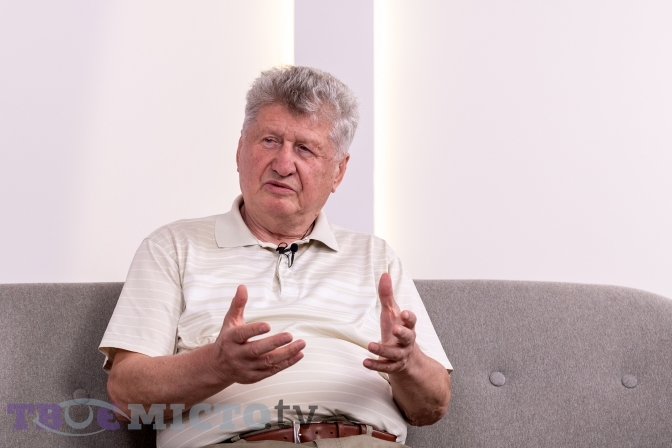
Do you regret not being able to lead this country in the 1990s?
Ukraine is big. Didn’t you pay attention to the cycle of history? According to the results of the first presidential elections of Ukraine, Chornovil won more than 23% of the votes, while Kravchuk – almost 62%. In fact, the same proportion was repeated in the 2019 elections, when Zelensky came to power. This proportion is preserved, the majority continues to peck at slogans – then one, now the other. To change it, serious efforts are needed. Society must be influenced!
There are adaptive properties of society and evolutionary ones. The latter was «knocked out» in our country for three centuries, while the former developed in full swing. Therefore, Ukrainians can adapt even to the impossible. Throw a Ukrainian on the moon – and he will plow there too. When we gained independence, we had to rely on our own strength and evolutionary properties, but it turned out that we did not have them. That is why I held speeches about the program of joining the European institutions because they set external requirements and start adaptation. This would allow Ukraine to get back on its feet very quickly. Russia understood this, which is why it organized scandals with Kuchma.
A full-scale war has been going on for six months, until suddenly we learn that the deputy head of the SBU was transporting money and diamonds through Belarus in minibuses a few hours before the start of the offensive! How could this happen in the 21st century?
This is unbelievable! I saw how everything was destroyed, step by step, when I was a member of the Verkhovna Rada. Twice, I was a member of the Defense Committee and raised the issue of dispersal of military units across Ukraine. They had to be partially transferred to the Chernihiv and Kharkiv regions, as due to historical circumstances, they had focused on the west.
In the Lviv region, the troops were always seriously engaged. We had a military district here, and as its chairman, I was part of the military council and knew the structure. At that time, let me remind you, we had a million-strong army. You have no idea how many nuclear weapons and shells we had here. I remember once I came to Stryi, where the centre of the long-range artillery corps was located. The four-meter rockets were piled up there like firewood, and with the money from the regional budget, we organized it all.
The army still kept on flow during Kuchma’s term, but under Yanukovych, Russians were appointed to the positions of minister and head of the SBU, and this direction was completely «decomposed». The current situation was saved only by the fact that our officers and generals remained from those ancient times.
In 1989, one of the largest demonstrations took place in Lviv, when the Greek Catholic Church came out of the underground [on September 17, a rally of over 200 000 UGCC faithful took place in Lviv, expressing their position regarding its legalization.]
The authorities in Moscow were extremely worried at that time. This public action marked the end, and the Church was legalized.
Public activist Taras Stetskiv once told me that Shcherbytskyi, the first secretary of the Central Committee of the Communist Party of Ukraine, ordered the troops of the Carpathian Military District to enter Lviv and prevent this demonstration. But the order was not carried out, and Shcherbytskyi resigned a few days later.
Do you know what saved Viktor Skokov, the commander of the Military district? He was then a People’s Deputy, personally acquainted with Gorbachev and Yeltsin, whose apartment was above Skokov’s apartment. This allowed him to act contrary to orders. He did a lot to prevent something like that from happening in Lithuania [since January 11, 1991, Soviet troops occupied the House of Press, television centres and hubs in Lithuanian cities, and in two days, stormed the TV tower in Vilnius. The local population en masse opposed them, as a result of which 13 people died and dozens were injured.]
We agreed with Skokov and returned all our conscripts to the Lviv region. There was a military unit and housing for them at the training ground, but it was very difficult. I didn’t want to sign the mobilization order, the tension was growing... The Ukrainian SSR Deputy Prime Minister went to Moscow, called me back at night and said that it was necessary to sign it urgently, otherwise, there would be serious consequences. At six in the morning, I called my assistants, we signed the order, and I announced it on television. Thanks to this, we missed what happened in Vilnius.
That is, you signed the mobilization in order to have your boys for the potential countering of the authorities?
No, I did it so that ours would not be taken to hot spots. My driver’s nephew joined the army, and literally, two weeks later he was killed in Azerbaijan. Other regions did not do this, but we returned Ukrainian boys to the Lviv region and thanks to this, we saved many.
In your opinion, will this war change us so much that people of the pro-European vector will decide the fate of the country?
It will undoubtedly strengthen the Ukrainian narrative. There will be a lot of people who have gone through the school of war, the military, who in such circumstances play a very serious role. But this aforementioned proportion will not change significantly. Why? Because the external mobilizing factor unites us. This happened when we went against Moscow, against the system, so all regions and military units voted for independence. We have the same thing now, the war unites us. But the time will come, and each family will deal with its own problems. Political parties will deal with their own interests, and the same thing will begin again.
This means that it’s necessary to go to European institutions as soon as possible.
Exactly! Take, for example, our agricultural sector: in the production of oil, we have turned into a world power, rebuilt the entire infrastructure, it is of the highest level now. Or poultry farming: did you know that chicken eggs from Ukraine were transported by ship and sold to Hong Kong and Singapore? The IT industry, which developed without the help of the state, grow from the grassroots, and now it includes companies with five to seven thousand employees.
IT sector seems to have shown 28 per cent growth last month. I am interested in something else: why do you, an economist, have the latest books on culture? And why in Ukraine do people think that culture is less important than the economy?
It was imposed on us, this narrative came here from Russia. In recent years, I took up the cultural direction, seeing what the world tells us about the role of values. I came to a simple formula: it’s not the economy that makes us Ukrainians, but culture. Family and education, environment and songs form those values that make us specific people, who are called Ukrainians.
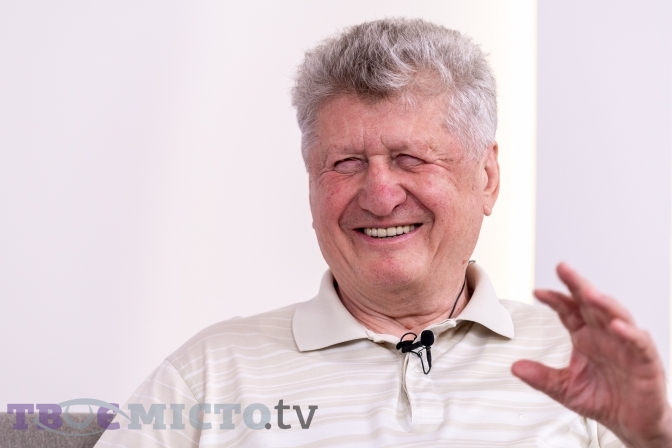
In your opinion, is it possible to be a «citizen of the world», speak Russian, love Dostoyevsky and at the same time build a successful, prosperous country on economic freedom?
Practice shows that in such countries as Ukraine it’s impossible. We, like Poland, need a strong national backbone. The international theory of «citizens of the world» is already being rejected by the world. For the last 20-25 years, the process of globalization, spread of technologies and economy has been going on. But countries began to look around, to understand that something was wrong. And after research on a new basis, they began the movement toward the national, re-evaluation of its role and significance. For example, the French have already made a large number of decisions regarding their language, art, and culture. The United States, which unites very different people, allocates 980 billion dollars a year to the development of such things. Globalization continues, but people have come to a deeper understanding of it. To build a successful state, you need to have roots, to lean on them. Right now in Ukraine, there is a movement towards its roots, which will give us juices for evolution. This process takes place throughout the country, in each region in its own way.
I will say a few more words about what awaits us. After 1945, Germany was left without factories because they were taken away. Our Zhydachiv pulp and paper mill was brought from there. And what did it lead to? In Germany, there was powerful engineering thought, which made it possible to build enterprises on new foundations and according to new technologies, to break away from the old. Japan followed the same path at one time. Therefore, after the war in Ukraine, the leadership could use this situation to introduce new technologies and build new enterprises. If, of course, it will be wise, which I doubt.
There is not much left – to end the war with victory and join the European Union.
So. And it is also important that we are not alone, we are with the world that is winning. Therefore, we will undoubtedly win!
Andrii Saichuk spoke
Text: Marichka Ilyina, translated by Vitalii Holich
Photo: Ivan Stanislavskyi
Full or partial republication of the text without the written consent of the editors is prohibited and considered a violation of copyright.
Follow us on Facebook and Instagram. Lviv Now is an English-language website for Lviv, Ukraine’s «tech-friendly cultural hub.» It is produced by Tvoe Misto («Your City») media-hub, which also hosts regular problem-solving public forums to benefit the city and its people.



